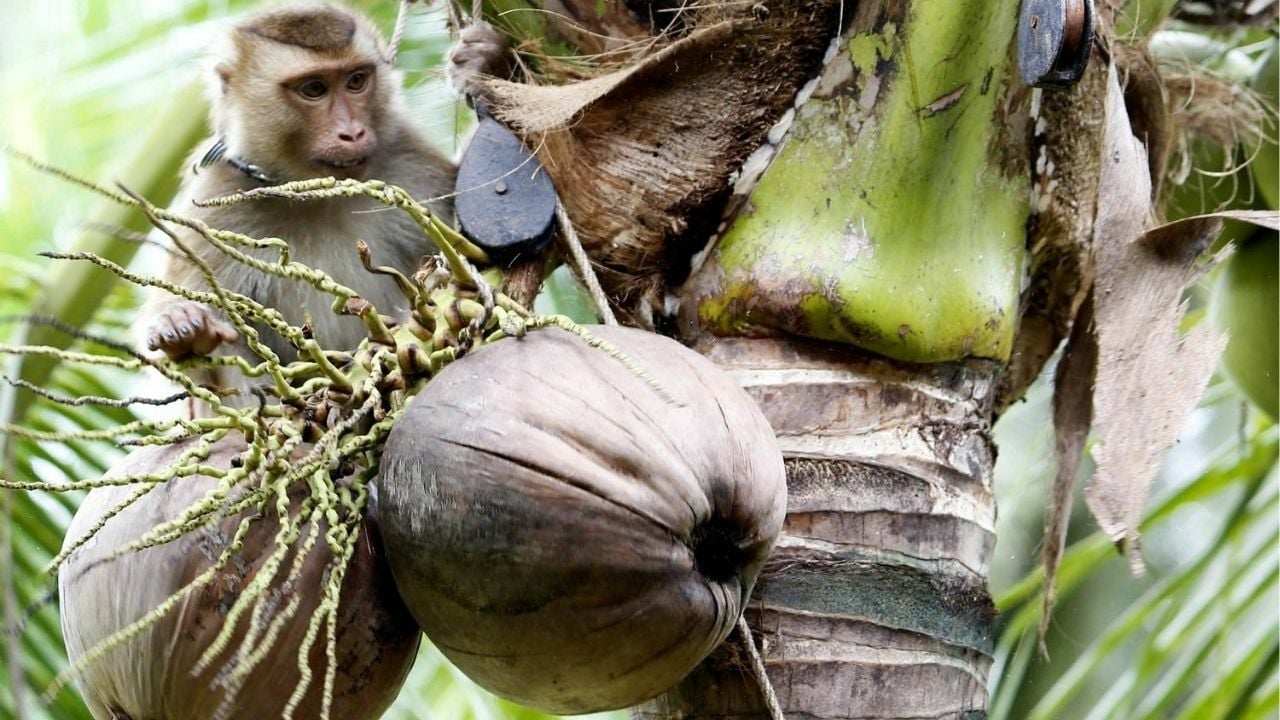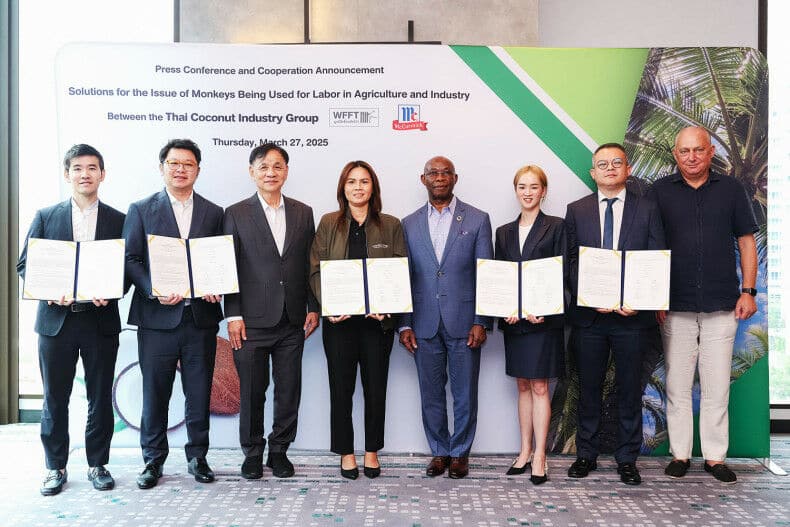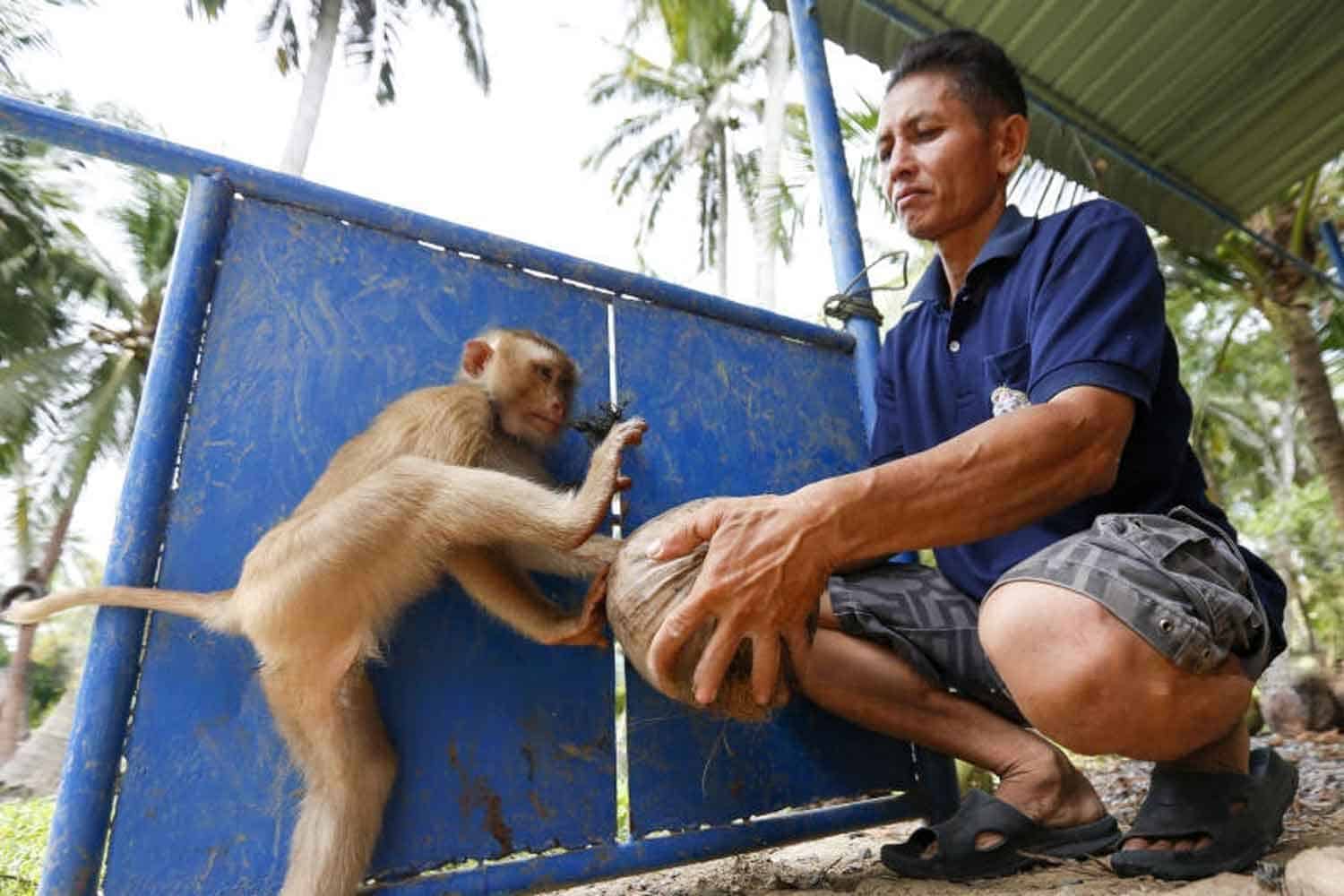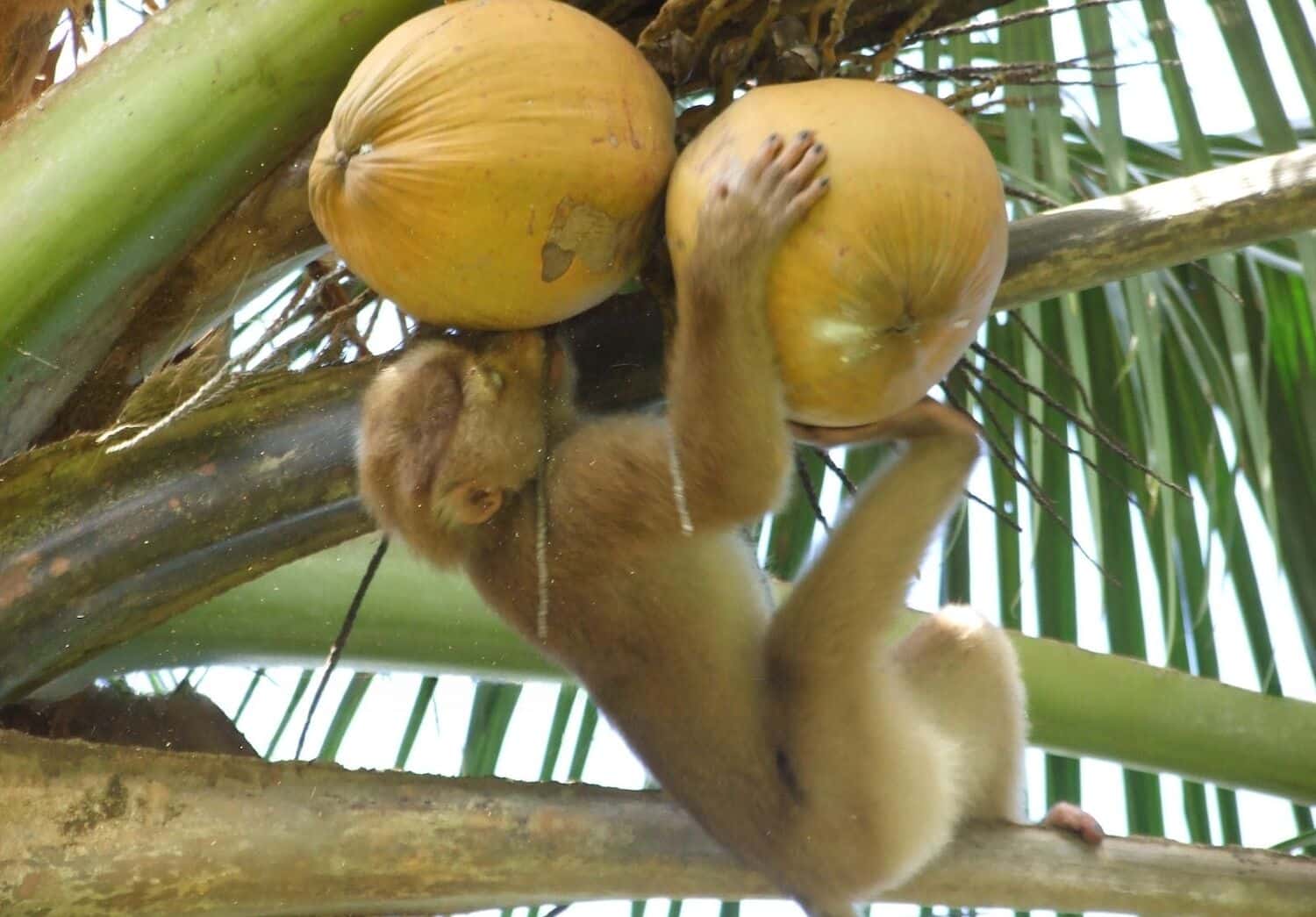

Thailand’s coconut industry is finally cracking down on a controversial practice that has tarnished its reputation worldwide: using monkeys to harvest coconuts.
In a landmark move to rescue its image and secure farmers’ livelihoods, the Thai Coconut Industry Group has joined forces with the Wildlife Friends Foundation Thailand (WFFT) to ban monkey labour once and for all.
The country’s coconut sector rakes in over 25 billion baht each year and supports more than 300,000 farming households. But behind the booming trade, troubling stories of monkeys being trained to climb trees and collect coconuts have sparked outrage.
Animal rights groups and consumers have condemned the practice, prompting boycotts by major European and North American retailers. The backlash has already cost Thailand an estimated 2 billion baht a year in lost business.
Determined to end the controversy, four leading producers, Asiatic Agro Industry, Suree Interfoods, Thai Coconut Public Company Limited, and Theppadungporn Coconut, formed the Thai Coconut Industry Group to drive ethical change.

A watershed moment came on March 27, when the Group signed a Memorandum of Understanding (MOU) with WFFT. This is the first industry-wide pledge to end monkey labour, providing financial support for the long-term care of animals retired from the trade.
“Our members already reject monkey labour, use traceability systems, and support ethical farming. This transition is essential—not only for animal welfare but to secure a sustainable future for the industry.”
The agreement goes beyond promises. Producers are actively lobbying for new laws to ban the practice nationwide. At the same time, they’re investing in modern solutions: cultivating hybrid and dwarf coconut trees easier to harvest without animals, and mechanising production to boost efficiency.

The shift has won support from big international buyers like McCormick & Company and Merit Food Products, who have pledged funds to support rescued monkeys. Veterinary experts from Mahidol University are also on board, guiding best practices for animal care, reported Bangkok Post.
“This cooperation is a turning point,” said Edwin Wiek, founder of WFFT. “Together, we can establish a new global benchmark for ethical coconut sourcing.”

The group is also rolling out rigorous traceability systems to certify every exported coconut product as cruelty-free, reassuring buyers of the industry’s transparency.
“This is a step toward a future where Thai coconut farming is defined by ethical and sustainable practices, safeguarding the industry’s reputation and the livelihoods of the farmers who rely on it.”
The story Monkey business banned: Thai coconuts go cruelty-free as seen on Thaiger News.
